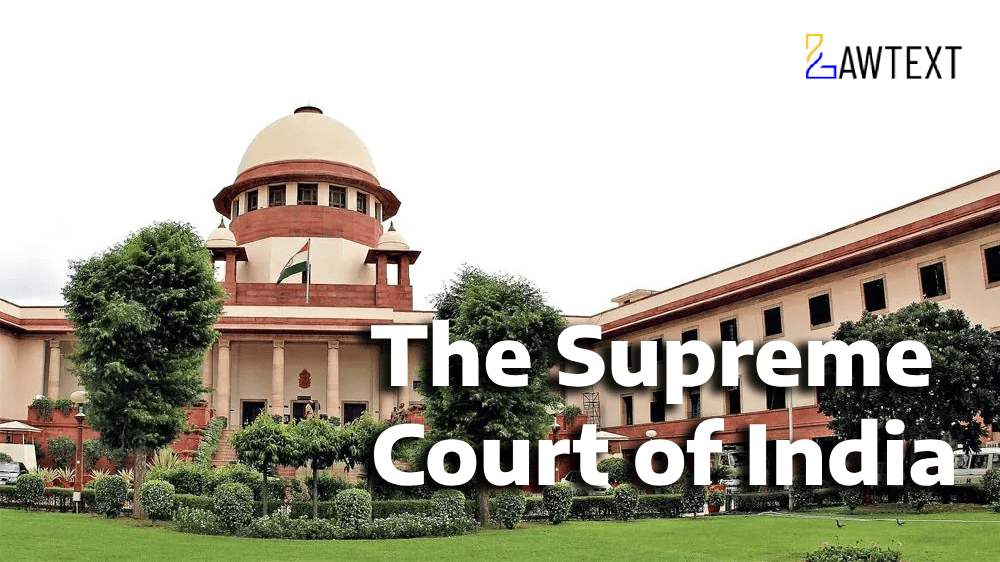CASE NOTE & SUMMARY
The Supreme Court set aside the Calcutta High Court’s judgment dated 24th August 2023, which overturned the First Appellate Court’s eviction order. The dispute originated in 1933 and involved allegations of illegal sub-letting by the tenant. The Trial Court had dismissed the eviction suit, but the First Appellate Court ruled in favor of the landlord. The Supreme Court affirmed this decision, holding that the High Court erred in its assessment of necessary parties and the issue of sub-letting. The tenant was ordered to vacate the property by December 31, 2024.
1. Background of the Case
- The dispute between the plaintiff-appellant (landlord) and respondent-tenant began in 1933 when Harak Chand Veljee settled premises Nos. 37, 38, and 39, Ezra Street, Calcutta, in trust. The tenancy stood in the name of M/s. B.N. Choubey & Company, with allegations of illegal sub-letting by the respondent.
2. Trial Court Findings (Ejectment Suit No. 1079 of 2002)
- The Trial Court dismissed the eviction suit, ruling in favor of the defendant (tenant) on certain issues like maintainability, relationship of landlord-tenant, and default in rent payment. However, it ruled in favor of the plaintiff on issues like ownership of the property and valid eviction notice.
3. First Appellate Court (Title Appeal No. 14/2018)
- The First Appellate Court overturned the Trial Court's decision and ruled in favor of the plaintiff. The court found contradictions in the Trial Court’s reasoning and held that the relationship of landlord-tenant was established, and the defendant had sublet the premises illegally.
4. Calcutta High Court (S.A. No. 100/2021)
- The High Court allowed the appeal on the grounds of non-joinder of necessary parties, particularly the trustees representing the tenant’s estate. It also questioned the First Appellate Court's findings on sub-letting, holding that there was no evidence to support such a conclusion.
5. Supreme Court Judgment (SLP (C) No. 24805/2023)
- The Supreme Court set aside the High Court’s judgment, holding that the issue of necessary parties was not raised in the written statement by the defendant before the Trial Court. Further, it ruled that the High Court erred in concluding that the First Appellate Court’s findings on sub-letting were unsupported by evidence. The Supreme Court reaffirmed the First Appellate Court's judgment, ordering the tenant to vacate the premises by December 31, 2024.
Acts and Sections Discussed
-
Section 100, Civil Procedure Code (CPC), 1908 – Governing second appeals on substantial questions of law. The Supreme Court emphasized that the High Court must adhere to framing and deciding second appeals only on the substantial questions of law.
-
Order XXXI Rule 1, CPC – Relating to suits by or against trustees, executors, and administrators. The High Court’s judgment was critiqued for misapplying this provision in concluding that all trustees of the tenant’s estate were necessary parties to the suit.
Ratio Decidendi
The Supreme Court held that the Calcutta High Court erred by:
- Overturning the First Appellate Court’s findings without adequate framing of substantial questions of law regarding sub-letting.
- Misinterpreting the necessity of impleading all trustees of the tenant’s estate when the defendant had not raised this issue during the Trial Court proceedings.
The Court reaffirmed the First Appellate Court’s decision to evict the tenant for sub-letting and failure to prove the non-joinder of necessary parties.
Subject
Landlord-Tenant Dispute, Eviction, Sub-letting, Non-joinder of Necessary Parties. Civil Procedure Code, Section 100 CPC.
Citation: 2024 LawText (SC) (9) 137
Case Number: CIVIL APPEAL NO…..…… OF 2024 (Arising out of SLP (C) No. 24805 of 2023)
Date of Decision: 2024-09-13
Case Title: RASHMI KANT VIJAY CHANDRA & ORS. Versus BAIJNATH CHOUBEY & COMPANY
Before Judge: (J.K. MAHESHWARI J. , SANJAY KAROL J.)
Appellant: RASHMI KANT VIJAY CHANDRA & ORS.
Respondent: BAIJNATH CHOUBEY & COMPANY

